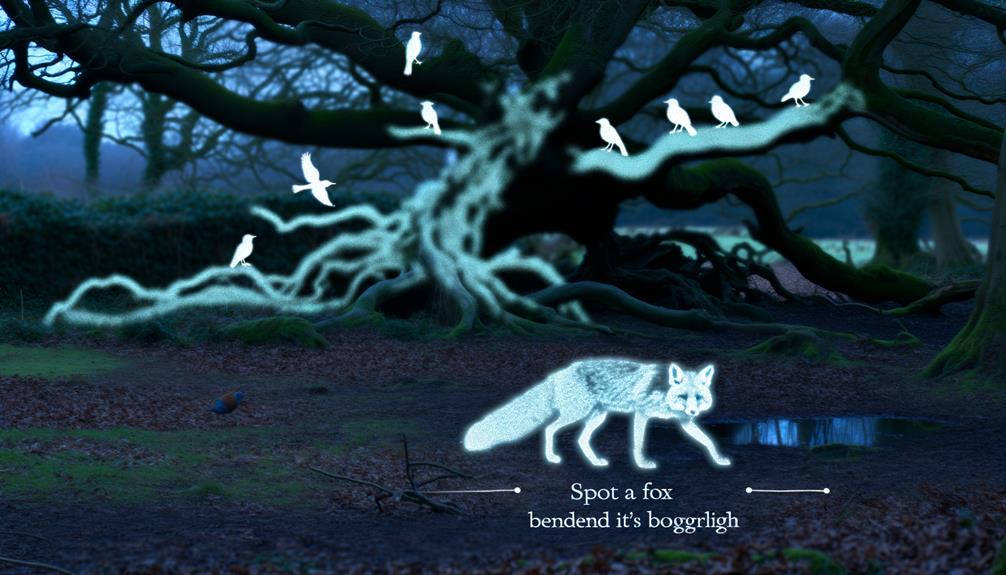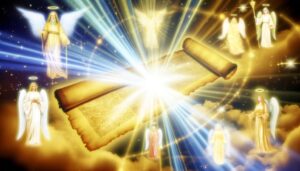Foxes Have Dens Bible Verse Meaning: Discipleship
In Matthew 8:20, the phrase ‘foxes have dens’ highlights the cost of discipleship through Jesus’ embrace of instability and sacrifice. It reflects his nomadic lifestyle, devoid of material security, and underscores a reliance on divine providence.
Symbolically, foxes represent transient worldly pursuits, while birds signify spiritual freedom under God’s care. This passage challenges followers to prioritize spiritual over material values, echoing Jesus’ radical model of dependence solely on God.
By identifying as the “Son of Man,” Jesus draws on messianic and prophetic traditions, emphasizing his sacrificial mission and calling believers to a similar path of spiritual commitment and resilience. Learn more about how this narrative shapes the Christian understanding of discipleship.

Foxes Have Dens Bible Verse: Meaning and Lessons from Matthew 8:20
| Aspect | Details |
|---|---|
| Verse Text | Matthew 8:20: “Jesus replied, ‘Foxes have dens and birds have nests, but the Son of Man has no place to lay his head.’” |
| Biblical Context | Spoken by Jesus to a would-be disciple, highlighting the sacrifices involved in following Him. |
| Key Themes | Sacrifice, humility, discipleship, and the transient nature of earthly life. |
| Symbolism | “Foxes and birds” represent earthly creatures with stability, contrasting with Jesus’ lack of earthly comforts. |
| Spiritual Insights | Encourages believers to prioritize spiritual commitments over worldly security. |
| Practical Application | Challenges individuals to assess their willingness to embrace sacrifice for their faith. |
| Modern Relevance | Reminds followers of the cost of true discipleship and the eternal rewards of faithfulness. |
Context of Matthew 8:20

In the context of Matthew 8:20, Jesus articulates a profound statement about the cost of discipleship, emphasizing His own lack of earthly accommodations.
This verse reads, ‘Jesus replied, ‘Foxes have dens and birds have nests, but the Son of Man has no place to lay his head.”
Analyzing this within its immediate narrative framework, it follows an enthusiastic scribe’s declaration to follow Jesus wherever He goes.
Jesus’ response serves as a sober reminder that following Him demands a willingness to embrace instability and sacrifice.
Jesus’ Nomadic Lifestyle

Jesus’ nomadic lifestyle, as exemplified in Matthew 8:20, underscores both His physical homelessness and the essential nature of His ministry.
This itinerant existence accentuates His reliance solely on spiritual sustenance, contrasting sharply with worldly securities.
Through this paradigm, Jesus not only models a life of total dependence on divine providence but also challenges His followers to prioritize spiritual commitments over material comforts.
Homelessness and Ministry
Although frequently itinerant, the ministry of Jesus Christ exemplifies a profound theological and practical engagement with the concept of homelessness.
In Matthew 8:20, Jesus states, ‘Foxes have holes and birds of the air have nests, but the Son of Man has nowhere to lay his head.’ This declaration emphasizes His voluntary renunciation of permanent shelter, highlighting a deliberate alignment with the marginalized.
Jesus’ nomadic lifestyle serves not only as a model of humility but also accentuates the transient nature of earthly existence. By embracing homelessness, He identifies closely with those on society’s fringes, thereby offering an implicit critique of social and economic disparities.
This itinerancy underscores a ministry deeply rooted in solidarity and divine mission.
Spiritual Dependence Only
This profound theological stance on homelessness seamlessly extends into a broader discourse on spiritual dependence, epitomized by Jesus’ deliberate embrace of a nomadic lifestyle. Jesus’ lack of a permanent home underscores His absolute reliance on divine providence rather than material security. This choice illustrates a radical model of discipleship, urging followers to prioritize spiritual over earthly attachments.
| Aspect | Description |
|---|---|
| Biblical Reference | Matthew 8:20 – “Foxes have dens and birds have nests, but the Son of Man has no place to lay his head.” |
| Theological Implication | Demonstrates ultimate trust in God’s provision |
| Discipleship Model | Advocates for spiritual over material reliance |
| Cultural Context | Contrasts typical societal values of home and security |
| Spiritual Dependence | Emphasizes reliance on divine rather than worldly resources |
This framework invites a profound reflection on the nature of spiritual dependence.
Symbolism of Foxes and Birds

In examining the symbolism of foxes and birds within biblical texts, it is essential to understand the distinct representations each animal holds.
Foxes often symbolize cunning and desolation, while birds frequently embody spiritual freedom and divine care.
Analyzing these symbolic meanings reveals profound insights into the comparison drawn between foxes and birds in scripture, particularly in the context of Jesus’ teachings on earthly existence and spiritual priorities.
Biblical Foxes’ Symbolism
Within the context of biblical literature, foxes are often portrayed as symbols of cunning and deceit, contrasting sharply with the imagery associated with birds, which frequently symbolize freedom and divinity.
This characterization is evident in passages such as Song of Solomon 2:15, where foxes represent potential threats to the purity and integrity of the vineyard, a metaphor for the relationship between God and His people.
Similarly, in the Gospel of Luke 13:32, Jesus refers to Herod as a ‘fox,’ underscoring his craftiness and moral corruption.
Such depictions underscore the thematic tension between human fallibility and divine sovereignty.
Consequently, the fox’s symbolism in scripture serves as a poignant reminder of the perils of deceit and the need for spiritual vigilance.
Birds’ Spiritual Significance
Contrary to the negative connotations associated with foxes, birds often symbolize spiritual elevation, divine presence, and the soul’s transcendence in biblical texts. The imagery of birds is richly woven into scripture, often representing a bridge between the earthly and the divine. For instance, the dove signifies peace and the Holy Spirit, while the eagle exemplifies strength and renewal. These avian symbols elucidate the multifaceted nature of spiritual ascent and divine communication.
| Bird | Symbolism |
|---|---|
| Dove | Peace, Holy Spirit |
| Eagle | Strength, Renewal |
| Sparrow | Divine Care, Providence |
Understanding these symbolic meanings provides a deeper exegetical insight into the biblical narrative, highlighting the contrast between the earthly struggles symbolized by foxes and the spiritual aspirations represented by birds.
Foxes and Birds’ Comparison
Examining the contrasting symbolism of foxes and birds in biblical texts reveals profound insights into the dichotomy between earthly cunning and spiritual transcendence.
Foxes, often depicted as cunning and deceitful, embody the transient and treacherous nature of worldly pursuits. In contrast, birds, frequently symbolizing divine providence and freedom, represent spiritual elevation and the omnipresence of God’s care.
This juxtaposition underscores the biblical admonition to seek spiritual fulfillment over material gain.
Jesus’ statement in Matthew 8:20, ‘Foxes have dens, and birds have nests, but the Son of Man has no place to lay his head,’ further delineates this theme, highlighting His rejection of earthly securities in favor of a higher, spiritual mission.
Consequently, the symbolism serves as a theological exhortation toward spiritual prioritization.
The Son of Man

The phrase ‘The Son of Man,’ frequently used by Jesus in the Gospels, is a complex and multi-faceted term that warrants detailed exegetical examination to understand its theological and eschatological implications. This title, with its rich Old Testament roots and New Testament revelations, encapsulates both Jesus’ humanity and divine authority.
A thorough analysis reveals:
- Danielic Background: Reflects the vision in Daniel 7:13-14, signifying a messianic figure endowed with everlasting dominion.
- Human Identification: Emphasizes Jesus’ complete identification with humanity, highlighting His role as the ideal human.
- Suffering Servant: Connects to Isaiah’s prophecies, indicating a role in redemptive suffering.
This term, therefore, is integral to Christological studies.
Sacrifices of Jesus

Building upon the profound implications of Jesus as ‘The Son of Man,’ the multifaceted sacrifices of Jesus underscore His redemptive mission and ultimate fulfillment of messianic prophecies.
Jesus’ incarnation represents the initial sacrifice, as divinity entered human frailty. His ministry, marked by poverty and homelessness, further exemplifies His self-denial.
The culmination of His sacrificial journey is evident in the crucifixion, where He bore the sins of humanity, fulfilling Isaiah’s Suffering Servant prophecy (Isaiah 53). Additionally, the resurrection signifies triumph over sin and death, validating His messianic role.
Each element of Jesus’ sacrifice is integrally connected to His identity and mission, revealing a holistic framework of redemption that is foundational for Christian theology.
Implications for Early Christians

As early Christians grappled with the socio-political challenges of their time, the teachings and sacrifices of Jesus provided both a theological foundation and a model for steering their faith amidst persecution.
The verse “Foxes have dens but the Son of Man has no place to lay his head” (Matthew 8:20) served as a poignant reminder of the transient and sacrificial nature of discipleship. This passage underscored several critical implications:
- Embrace of a transient lifestyle: Reflecting Jesus’ own itinerant ministry.
- Rejection of worldly security: Prioritizing spiritual over material comfort.
- Solidarity in suffering: Finding purpose in shared hardships.
These elements collectively strengthened the resolve of early Christian communities.
Relevance for Modern Believers

Understanding the verse ‘Foxes have dens but the Son of Man has no place to lay his head’ remains essential for modern believers as it calls for a renewed examination of one’s spiritual priorities in a materialistic world.
This declaration by Jesus challenges followers to contemplate the transient nature of worldly comforts against the eternal significance of spiritual devotion.
Modern believers, often ensnared by consumerism, are urged to reassess their commitments, ensuring that their pursuit of material wealth does not overshadow their spiritual responsibilities.
This verse serves as a poignant reminder of the sacrificial and itinerant life of Jesus, encouraging today’s Christians to embrace simplicity and focus on their faith journey over material accumulation.
Conclusion
In concluding, Matthew 8:20 encapsulates the transient and sacrificial nature of Jesus’ ministry.
Through the imagery of foxes and birds, the verse underscores the lack of worldly attachments and comforts in Jesus’ life. This stark contrast between the carefree existence of animals and the hardships faced by Jesus emphasizes his commitment to a higher purpose, prioritizing spiritual fulfillment over material gain. The reference to foxes and birds serves as a poignant reminder that true security lies not in worldly possessions, but in the unwavering faith and trust in God. This theme resonates throughout scripture, particularly in the context of the ‘many are called verse explanation,’ highlighting that while many may seek comfort and ease, the path of discipleship invites a profound detachment from worldly desires.
What does this signify for early Christians who were called to follow Him under similar conditions?
The passage invites modern believers to reflect on their own commitments and sacrifices in the pursuit of spiritual fulfillment and devotion to the teachings of Christ.






